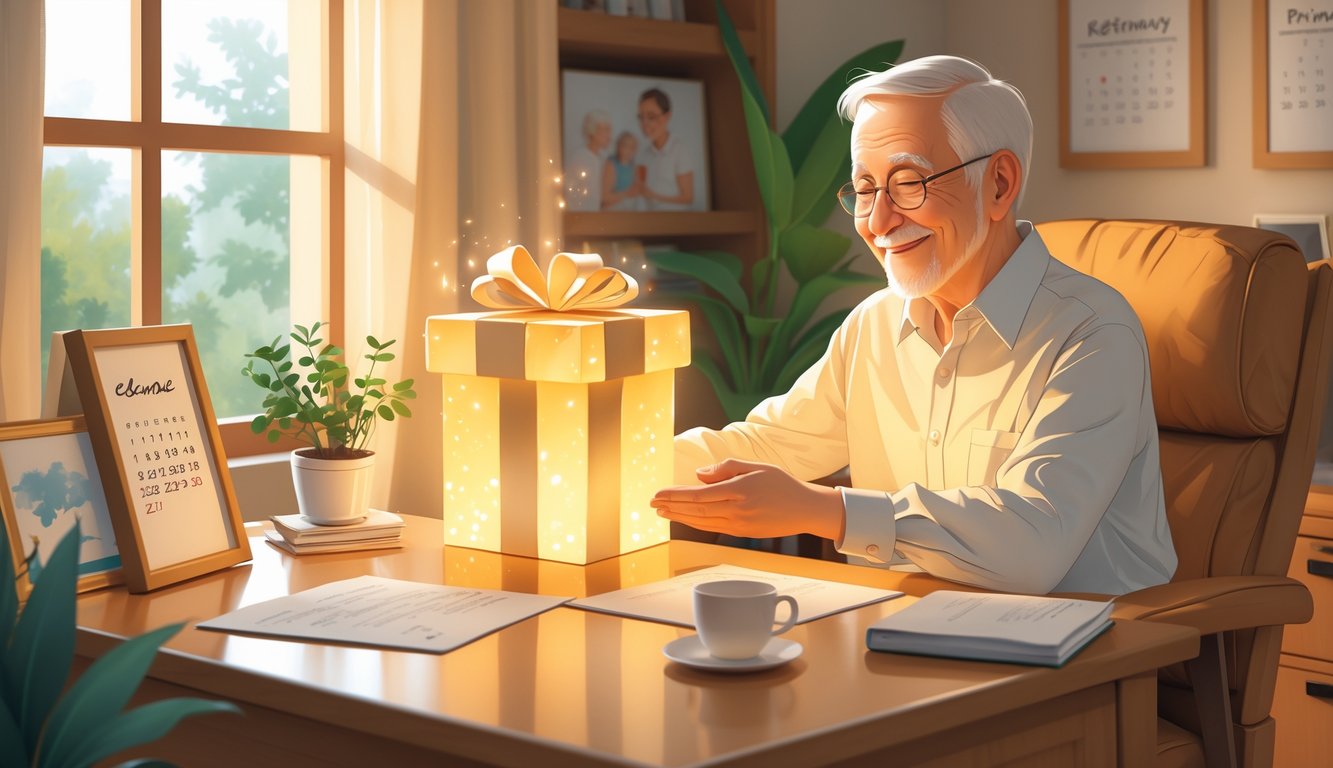
Experience-Based Retirement Gifts

Why does nobody ever say, “Let’s give them a memory instead of another mug?” I’ll never get it. Every retiree I know lights up talking about where they’ve been, not what they got.
Cooking Classes and Masterclasses
People don’t realize how freeing it is to finally try making a real paella—or just bread that isn’t from a box. A cooking class gives you something new, and if you pick the right one, it’s a story for every future dinner. I’ve watched a hands-on masterclass with a celebrity chef totally change someone’s week. Mara’s HR team sent her to a pasta lesson. She says that’s when retirement finally felt real. The Free Financial Advisor says experiences beat objects for long-term happiness, but who’s keeping score?
And please, skip the big group thing. Private or tiny classes work better. People forget recipes but remember a burnt soufflé.
Travel Vouchers and Wild Adventures
There was Ed. Three world clocks, still desperate to get out of town. Give someone travel vouchers or adventure trips and suddenly they’re bungee jumping or riding trains across Canada. Way better than reorganizing the garage.
Airline gift cards, rail passes, guided tours—just pick something from their “someday” list. Some people want to chase auroras, others just want ramen in Tokyo. CultureMonkey says budgets vary, but honestly, just spend what you can. Experiences don’t lose value.
But here’s the catch: some vouchers expire fast or force you to pick dates years in advance. Ask about flexibility. If you don’t know where they want to go, book a flexible trip, but warn them it might get weird.
Spa Days and Wellness Retreats
Nobody regrets a spa day. Doesn’t matter if it’s a silent retreat, a detox, or just a massage. “Wellness retreats” are like a reset button after decades of office noise.
One VP I know got a week at a yoga ashram from her team. She came back, said it changed her life, and never checked work email again. That’s a win. CNN suggested a fancy espresso machine, but honestly, that’s just a gadget. Not the same.
Look for all-inclusive packages with options—change up the treatments, skip the sound bath if you want. And after the retreat, maybe toss in a streaming service or meal kit. The sudden quiet can be weird.
Lifelong Learning and Trying Weird New Stuff
Retirement doesn’t quiet things down—it just gives you new stuff to stress about. I’ve met retirees with more energy than most twenty-year-olds. They all say the same thing: learning doesn’t stop at 65; it barely starts. Honestly, it’s way easier to buy a mug that says “Congrats!” than picture someone learning bird migration patterns at 72. But maybe that’s the point?
Online Classes and Lifetime Learning
First off, “online class” just makes my brain itch. I picture twenty browser tabs, a PDF that won’t open, and that one Zoom password I can never find. Is it worth it? I mean, yeah, sometimes. I’ve seen ex-CFOs muddling through Mandarin, retired teachers suddenly obsessed with quantum physics, or, I don’t know, ukulele lessons just so they can one-up their neighbor. Coursera, edX, AARP’s “Senior Planet” (not a planet, still mad about that)—all of them crank out new classes that are actually kind of interesting if you poke around. Not just “Algebra 101” reruns, thankfully.
Stanford’s Center on Longevity—do they ever sleep?—says people who chase new hobbies or learning goals are, what, 30% happier? Supposedly. I keep seeing families hand out Udemy credits like candy. My uncle? He actually cried over a creative writing course at Christmas, which is wild because the man’s immune to “The Bachelor” finales. Not everyone finishes, obviously—half the courses get dropped faster than gym memberships in February. But whatever, even the half-finished ones stick with you.
National Geographic Subscriptions
Nobody’s ever said, “Wow, thanks for the National Geographic subscription!” at a party. Doesn’t matter. I know two people who still have their first map, folded so many times it’s practically a fossil. There’s no grand payoff here—one minute you’re reading about hippos, next you’re googling “can I kayak with hippos” and, honestly, you’re not even sure you want to know the answer.
It’s weirdly old-school to get the print version, but the digital one has archives going back to 1888, interactive stuff, photo essays—sometimes the only way I can start a conversation at family dinners is by stealing a fact from last month’s article (my nephew genuinely thinks I met a mammoth). I dared my book club to read a whole issue. Now half of them send me corrections and say they could win “Jeopardy.”
If you want to get technical, National Geographic’s got Pulitzer winners on the board, and they peer-review the science. I gave it as a gift once, and, sure enough, got a text about a turquoise python three weeks later. Not sure if that’s a win, but it’s something.
Learning New Hobbies
Golf clubs, knitting kits—just, no. Real lifelong learning is messier and, honestly, more fun. Retirement communities love their “painting clubs” and “gardening groups,” but the weird stuff—like fermenting mushrooms, board-game nights run by retired engineers, or chess tournaments on a cracked iPad—that’s where things get interesting. Uplands Village says new hobbies are the secret sauce for confidence and purpose. Maybe.
I’ve watched people who never cooked suddenly win jam contests. Some retirees build model railways that would make Spielberg jealous. The point is, new hobbies shake your brain out of autopilot. Supposedly, according to Southpark Capital, it helps fight off depression. I mean, sure, if you don’t set the kitchen on fire trying to bake something new. If you’re not swearing at glue sticks or losing your trowel, are you even learning?